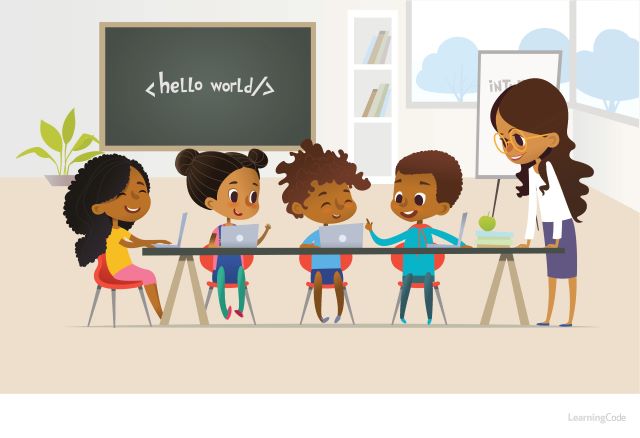
An increasing number of students are enhancing their practical computer skills and realizing that coders have the ability to create websites, apps, and software across various fields.
Recently, the University of California, Riverside, and the Riverside Unified School District announced a Computer Science (CS) 4 All Code Camp.
This free, one-week intensive program offered three sessions tailored to beginner, intermediate, and advanced levels. The program aimed to provide a solid foundation in coding and showcase role models to demonstrate that computer science is a viable path.
Inspired by CSforAll, an initiative developed by the National Science Foundation and the U.S. Department of Education, the camp attracted over 80 local middle and high school students interested in developing coding skills relevant to real life.
Eighth-graders, for instance, learned how to code and operate a drone at coding camps hosted by the University of Texas at Dallas.
The Center for Computer Science Education and Outreach led the program within the Erik Jonsson School of Engineering and Computer Science.
In 2021, CSforALL convened a meeting with leaders in K-12 computer science education, postsecondary education, and policymakers. The meeting, held virtually, focused on creating clarity around the CS education movement and mechanisms for equitable change.
It aimed to broaden participation in computer science, artificial intelligence (AI), and data science pathways, review current movement goals and national CS standards, and define next steps aligned with successful practices for equity.
“Five years have passed since the national call for Computer Science for All was made at the highest levels. Building on the early efforts of educators, researchers, school leaders, and communities, learners across the U.S. have been introduced to algorithmic thinking, coding, application development, web design, and other computer science fundamentals. While universal implementation still has a long way to go (Code.org, 2020), the momentum of the movement is undeniable, and enrollments in computing-related degrees at the postsecondary level have been steadily increasing,” the report stated.
According to UNESCO’s website, computer code is the language that shapes our digital world. It is essential for the development of AI systems that permeate all aspects of our lives.
Thus, it is concerning that there is a significant lack of diversity, inclusion, and representation among those who master this language.
Without diverse voices in coding and AI development, the digitalization of our society risks reflecting and reinforcing biases, perpetuating inequalities.
UNESCO Member States have designated October 29 as World Coding Day, which was celebrated for the first time in 2024.
🌐 Today marks the first-ever #WorldCodingDay!
Coding is more than just tech – it drives innovation and fuels creativity.
Join us in making coding skills accessible to all, building a more inclusive digital world! https://t.co/XKPTtdyIqu pic.twitter.com/inEmP58GVk
— UNESCO 🏛️ #Education #Sciences #Culture 🇺🇳 (@UNESCO) October 29, 2024
👩💻 Only 26% of the global workforce in coding & #AI are women.
To create a truly inclusive digital world, coding skills must become more accessible & equitable for women and girls.https://t.co/XKPTtdyIqu #Coding pic.twitter.com/aQ5j6TeFX7
— UNESCO 🏛️ #Education #Sciences #Culture 🇺🇳 (@UNESCO) October 30, 2024
The U.S. Army Corps of Engineers has been tasked with…
Brown and Caldwell, a leading environmental engineering and construction firm,…
Humboldt State University, one of four campuses within the California…